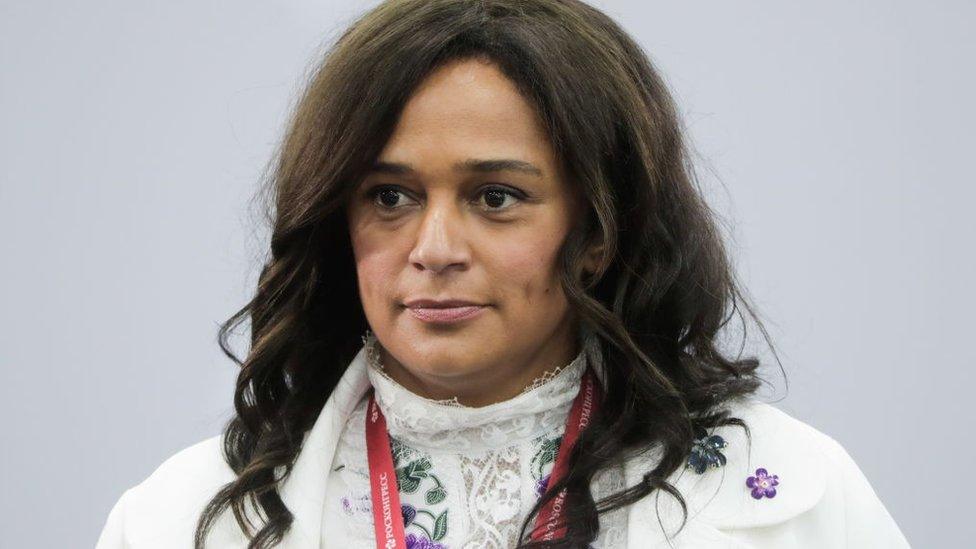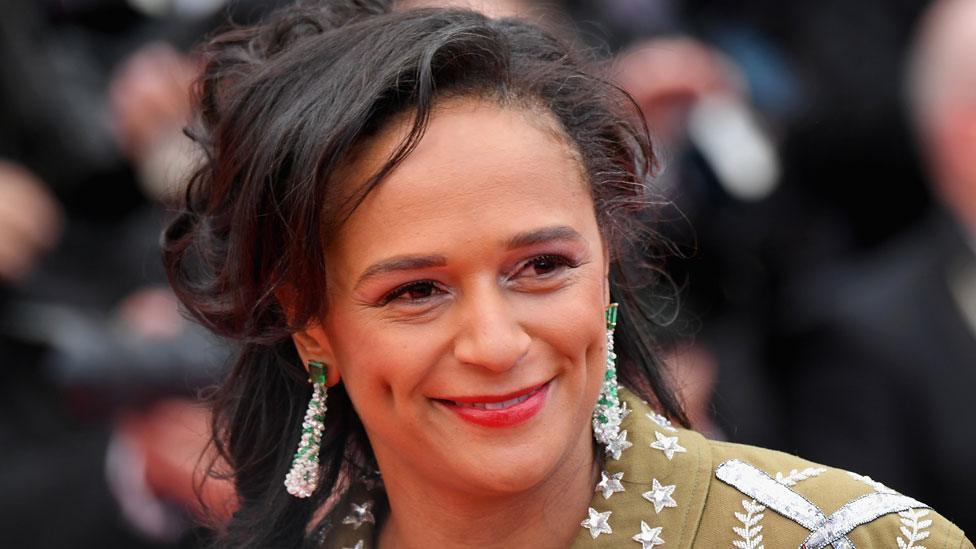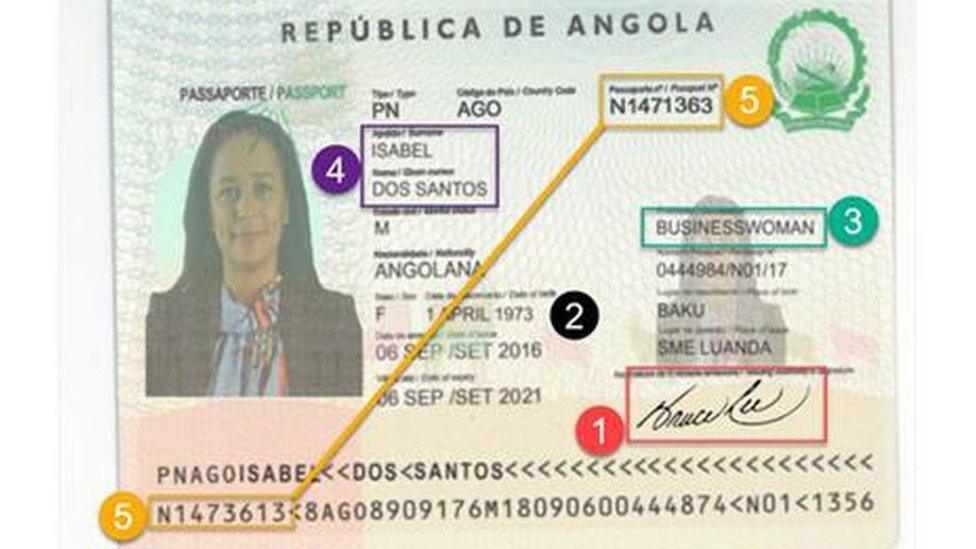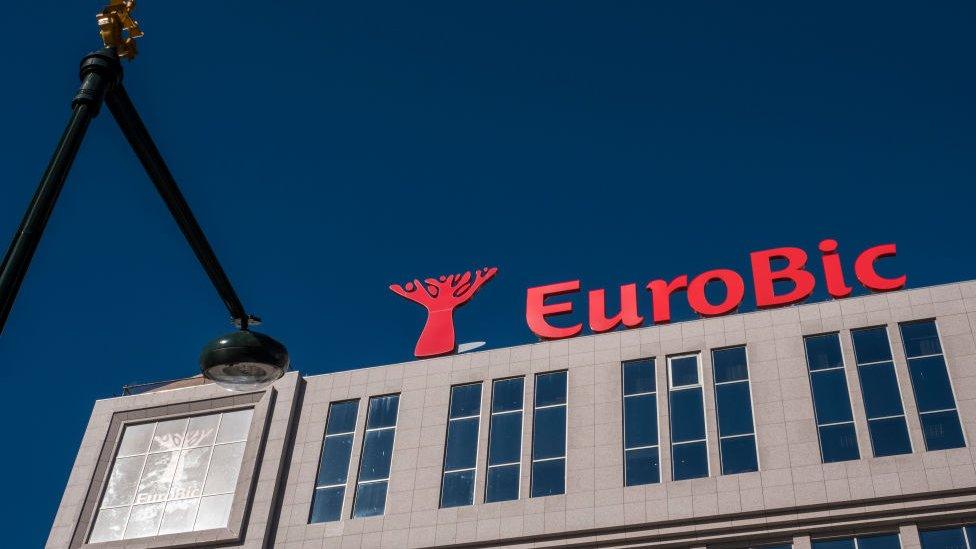Isabel dos Santos: Angolan billionaire hit with US visa restrictions
- Published

The US will deny entry to Isabel dos Santos, once said to be Africa's richest woman, for "involvement in significant corruption".
Her name appears on a list released by the State Department of people accused of corruption and who are facing sanctions.
Ms Dos Santos, 48, is the daughter of Angola's former president, José Eduardo dos Santos, who left office in 2017.
While he was president, she was chair of the state oil company.
According to US Secretary of State Anthony Blinken, Ms Dos Santos used her position to engage in corruption by "misappropriating public funds for her personal benefit".
His statement did not go into details about what Ms Dos Santos is accused of having done.
Visa restrictions issued by the State department will bar Ms Dos Santos and her immediate family members from entering the US.
She has not been subject to any financial sanctions.
In 2013, Forbes declared Ms Dos Santos the richest woman in Africa, with an estimated net worth of $3.5bn (£2.6bn). She was dropped from the list in 2020, with Forbes estimating that $1.6bn in assets are frozen in Angola and Portugal.
Ms Dos Santos was still believed to be worth over $2bn in January 2020. The International Consortium of Investigative Journalists has linked her to luxury apartments owned in both London and Lisbon, as well as a $35m yacht purchased through a shell company.
Last year, the BBC reported on leaked documents that revealed how she had made her fortune through allegedly exploiting her own country and corruption.
She got access to lucrative deals involving land, oil, diamonds and telecoms when her father was president.
The documents showed how she and her husband were allowed to buy valuable state assets in a series of suspicious deals.
At the time, Ms Dos Santos said the allegations against her were entirely false and that there was a politically motivated witch hunt by the Angolan government.
She has not responded to a request for comment on the US move from the BBC.
Related topics
- Published19 January 2020

- Published12 May 2020

- Published23 January 2020
